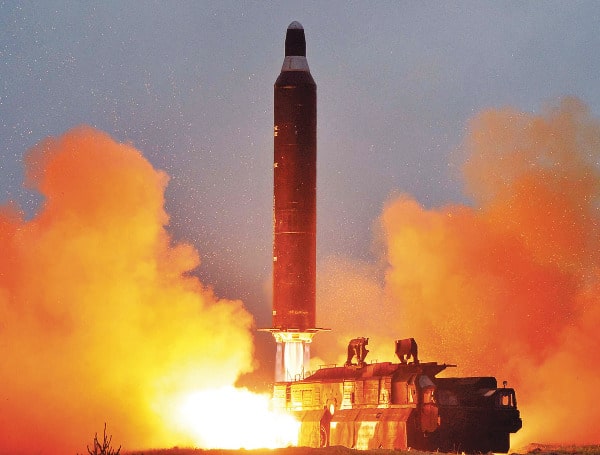by Micaela Burrow, TFP File Photo The World Economic Forum (WEF) names “misinformation” as one of the most severe threats facing the world in 2023
The World Economic Forum (WEF) names “misinformation” as one of the most severe threats facing the world in 2023, according to an annual report.
“Misinformation” is ranked 16th, or moderately severe, on a list of the 32 risks having the most impact over a two-year period, the 2023 WEF Global Risks Report, which displays the results of a survey of over 1,200 experts across multiple fields, shows.
The ranking aligns with the WEF’s accelerated efforts in recent years to address a perceived damage “misinformation” spreading online does to the health of societies.
In the news: Mafia Boss Matteo Messina Denaro ‘Diabolik’ Arrested After 30 Years On The Run
“‘Misinformation and disinformation’ are, together, a potential accelerant to the erosion of social cohesion as well as a consequence” and can worsen growing polarization and disunity among societies, the report states.
Political polarization, exacerbated by online information, in turn, becomes the defining feature of elections and can contribute to the degradation of democracy in a country, the report said.
Misinformation and disinformation have “become a prominent tool for geopolitical agents to propagate extremist beliefs and sway elections through social media echo chambers” by fostering doubt about political processes, the report stated. Online lies and misleading content can also “destabilize trust in information.”
“The election of less-centrist leaders and adoption of more ‘extreme’ policies in economic superpowers may fracture alliances, limit global collaboration, and lead to a more volatile dynamic,” the report said.
“Misinformation and disinformation” itself was ranked more severe than employment crises, infectious diseases, and the use of weapons of mass destruction.
Mis- and disinformation are defined in the report as “persistent false information … widely spread through social media networks” that influences public opinion “towards distrust in facts and authority.”
In the news: Florida Lawmakers Lead Effort To Block Biden From Removing Cuba From Terrorist List
“Global risk” is defined as “the possibility of the occurrence of an event or condition which, if it occurs, would negatively impact a significant proportion of global [gross domestic product], population or natural resources,” according to the methodology for the Global Risks Perception Survey upon which the WEF report is based.
The WEF stepped up efforts to combat so-called misinformation during the COVID-19 pandemic when alleged conspiracy theories spread by those who questioned the official dogma on the virus and its remedies exploded online. Complaints about rampant misinformation surfaced during U.S. election years, even though recent studies have shown that some online disinformation operations may have had minimal sway on public opinion.
Other lines of effort the WEF has suggested for cracking down on alleged online falsehoods include artificial intelligence that can recognize and flag or restrict content deemed dangerous by expert trainer
Respondents to the study identified “erosion of social cohesion and societal polarization” as the fifth highest short-term risk, topping prolonged economic downturns and large-scale environmental disasters.
In the news: Migrant Encounters At The Southern Border Hit New All-Time Record
The Cost of living crisis ranked highest in the short term, while in the long term, defined as over a 10-year period, climate change topped the list.
Respondents said the energy supply crisis, cost of living crisis, rising inflation, food supply crisis, and cyberattacks on critical infrastructure as the top five immediate risks having an influence on the short and long-term risks.
Android Users, Click Here To Download The Free Press App And Never Miss A Story. Follow Us On Facebook Here Or Twitter Here.

